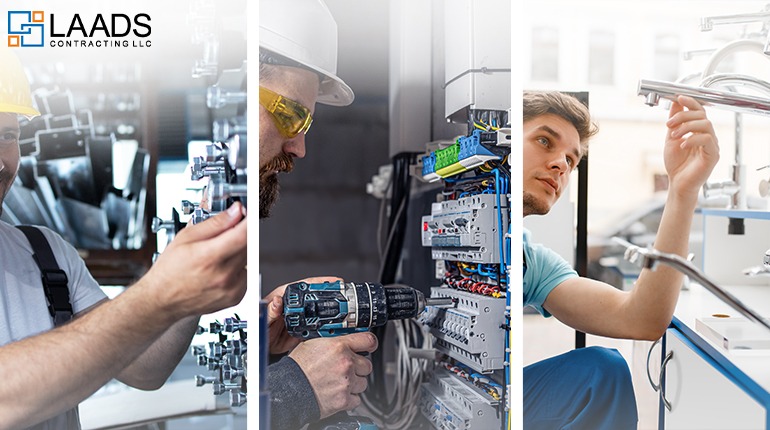In the modern world of construction, Mechanical, Electrical, and Plumbing (MEP) engineers are the backbone of any construction project. MEP (Mechanical, Electrical, and Plumbing) engineers are responsible for designing and planning essential building systems, including mechanical, electrical, and plumbing components. They also oversee the proper installation, design, and ongoing maintenance of these systems to ensure functionality and compliance with standards.MEP engineers work with contractors to supervise the installation of these systems and ensure that they meet all necessary regulations. This blog will explore the key roles and responsibilities of an MEP engineer in a construction company.
What is an MEP Engineer?
An MEP engineer is one who specializes in Mechanical, Electrical, and Plumbing systems within the construction project. They are responsible for integrating all the above systems into the building’s design. The role combines technical knowledge with project management skills; they must understand the building code and safety regulations. When working with MEP contractors in Dubai, such engineers ensure that these critical systems meet specific regional standards and requirements for construction projects.
The Roles and Responsibilities of an MEP Engineer
1. Design and Planning of MEP Systems
Blueprint Development: MEP engineers work closely with architects and civil engineers to create detailed blueprints and schematic diagrams for mechanical, electrical, and plumbing systems, ensuring that all elements function properly.
System Selection and Specification: MEP engineers select the best system to use and consider factors like cost, energy efficiency, and sustainability based on the project needs.
Load Calculation and Analysis: They calculate loads, capacity requirements, and utility needs, ensuring that systems can handle the building’s demands without compromising safety or efficiency.
2. Coordination with Construction Teams
Team Collaboration: MEP engineers work closely with various construction teams to integrate MEP systems without conflicts or delays.
Scheduling and Sequencing: They help coordinate schedules to ensure that MEP system installations align with other construction activities, preventing project delays.
Technical Support: During construction, MEP engineers provide on-site technical support, troubleshooting issues, and adjusting designs as needed to meet project requirements.
3. Project Budgeting and Cost Control
Budget Development: MEP engineers estimate the costs associated with MEP systems, contributing to the overall project budget.
Resource Allocation: They ensure the optimal allocation of resources, balancing quality with cost-efficiency.
Cost Monitoring and Adjustment: Throughout the project, MEP engineers monitor expenses, adjusting plans and materials as necessary to stay within budget while meeting quality standards.
4. Ensuring Regulations and Safety Standards
Adherence to Building Codes: MEP engineers ensure that all systems comply with local, national, and international building codes.
Safety Inspections and Testing: They conduct tests to verify that systems meet safety standards, documenting compliance and resolving issues as necessary.
Environmental and Sustainability Standards: With an increasing focus on eco-friendly building practices, MEP engineers often work to ensure that systems are sustainable and energy-efficient.
5. Quality Control and Assurance
Material and Equipment Selection: MEP engineers are responsible for selecting high-quality materials and equipment, minimizing the risk of future malfunctions.
Installation Supervision: They oversee the installation of MEP systems, ensuring that construction standards are met and addressing any issues that arise.
System Testing and Commissioning: Once systems are installed, MEP engineers test and commission them to ensure everything functions as intended before handing over the project to the client.
In summary, MEP engineers are always at the core of every construction project; they ensure the planning, design, and installation of any systems required. Their expertise keeps buildings safe, efficient, and in code compliance. Joining hands with the top construction company in Dubai, UAE makes sure these systems do integrate with ease, raising the quality and sustainability of the project.






